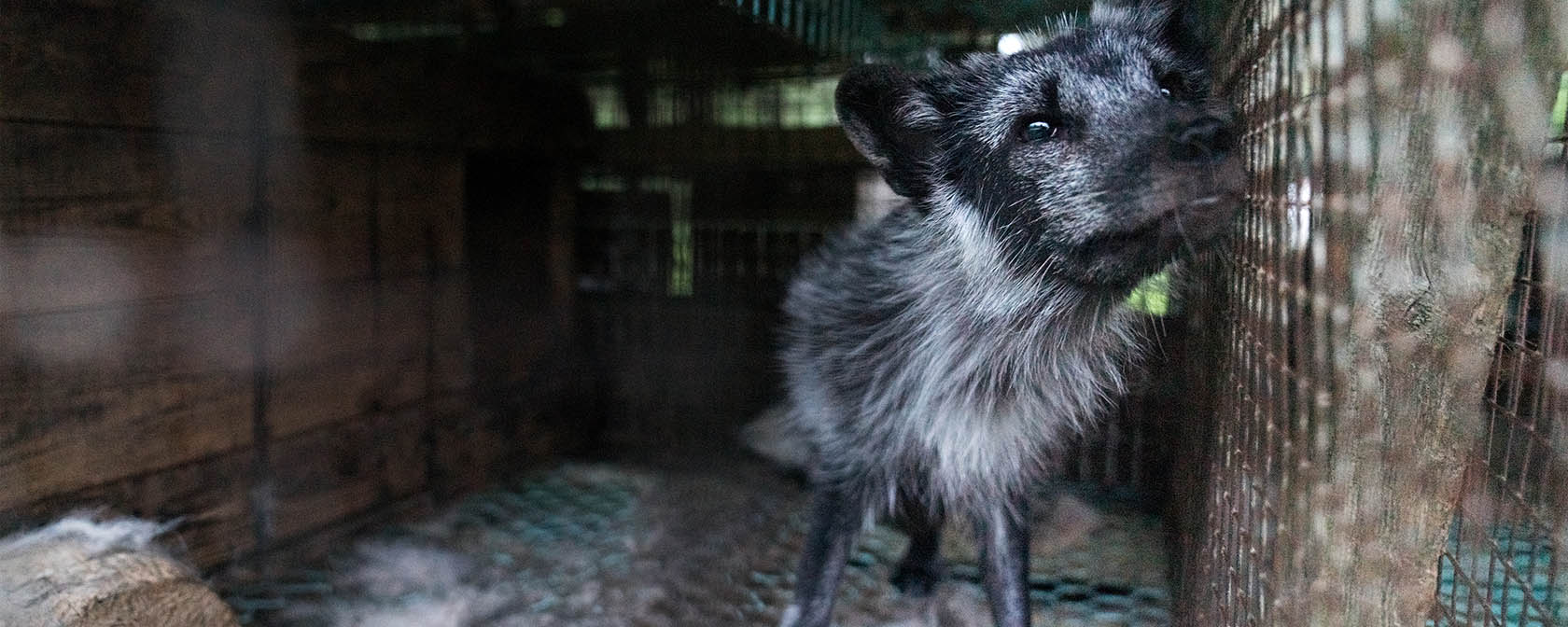By Sara Amundson and Kitty Block
Recently, the United Nations identified some of the top drivers of zoonotic diseases, like COVID-19, that spread from animals to humans. Not surprisingly, the top three factors specified align exactly with issues the Humane Society family of organizations named in May in our own global policy plan for preventing future pandemics: the increasing demand for animal products, unsustainable agricultural practices like keeping farm animals in close confinement, and the exploitation of wildlife.
Our report advanced an 11-point policy plan to reduce animal suffering and help prevent future pandemics. Today, the Humane Society of the United States and Humane Society Legislative Fund are releasing a more in-depth version of that report identifying specific actions U.S. lawmakers, as well as the private sector, can take to change how we treat animals and make our world less vulnerable to another disease outbreak.
These are problems the Humane Society family of organizations has already been calling attention to and working on for many years now, and we have made tremendous progress. But with our world upended by a pandemic such as one we have never seen before in our lifetimes, there is a pressing need to accelerate the pace of reform.
Following are the key areas where we are calling for change, along with solutions U.S. lawmakers and other stakeholders need to urgently implement:
Ending wildlife markets:
- Pass state laws prohibiting live wildlife markets and banning the intrastate transport of wildlife for human consumption.
- Create a federal ban on live wildlife markets selling wildlife for human consumption and further regulate live wildlife imports into the United States.
Ending the wildlife trade:
- Pass state and federal bans on both live wildlife imports and the keeping of exotic pets, which would reduce the risks of zoonotic diseases caused by the commercial wildlife trade.
- End traveling shows and close encounters with wildlife, including at zoos, fairs and circuses.
Ending fur farming and trade:
- Ban the trade in animals like foxes, raccoon dogs and mink who are used for fur and are common transmitters of zoonotic diseases.
We are also calling on apparel companies, governments and other entities to take steps to eliminate both the fur farm industry and demand for animal fur.
Ending the intensive confinement of farm animals:
- Pass laws ending the intensive confinement of farm animals, particularly for egg-laying hens in cages, mother pigs in gestation crates and baby cows in veal crates.
- Create federal economic incentives to assist farms transitioning from cage confinement systems to cage-free production.
- Ensure that bailouts and stimulus funds only go to producers that have eliminated—or have plans to eliminate—cages and have committed make other animal welfare improvements that lead to safer systems.
READ THE REPORT: The Animal Connection: Policies to prevent another global health crisis
We are urging food companies in the private sector to make and fulfill animal welfare pledges to stop purchasing eggs from caged hens, pork from operations that cage mother pigs and veal from caged calves. We are also asking financial institutions, both public and private, to only support cage-free production systems, and investors to hold food companies accountable for mandating that suppliers shift to cage-free production methods.
Developing alternative proteins in the food industry:
- Require public institutions to offer plant-based meals to consumers.
- Provide governmental financial support for the research and development of plant-based and cultivated meat technologies.
Additionally, food manufacturers should invest in creating more plant-based protein offerings, restaurants should offer more plant-based menu items, and grocery stores should provide more shelf space—specifically in the “meat” section— for plant-based proteins.
Developing alternatives to animal testing:
- Prioritize state and federal funding for continued development and application of human cell-based, nonanimal approaches to address solutions for COVID-19.
- Prioritize the application of existing human-relevant, nonanimal approaches for COVID-19 research by government and the private sector.
Ending sales of dogs from puppy mills, where infectious diseases can breed and spread:
- Create strict veterinary oversight for all commercial pet breeders and dealers
- Ban all sales of commercially raised puppies in pet stores.
Enforcing cockfighting laws:
- Enforce federal laws banning the transport and sale of fighting birds.
- Ban all possession and sale of birds for cockfighting in all U.S. states and territories.
With more than half a million people dead globally, and many times more infected by the novel coronavirus, maintaining status quo on how things are done is simply not an option. To move toward a pandemic-free world, we have to reevaluate our relationship with animals and treat them with the compassion and kindness they deserve. By mapping out the specific areas where reform is needed, our report provides U.S. lawmakers with a valuable guide for how they can begin to make our nation, and our world, a healthier place for all. And with your support we will be pushing with all our might to ensure these reforms are considered and implemented in days to come.
Kitty Block is President and CEO of the Humane Society of the United States.




